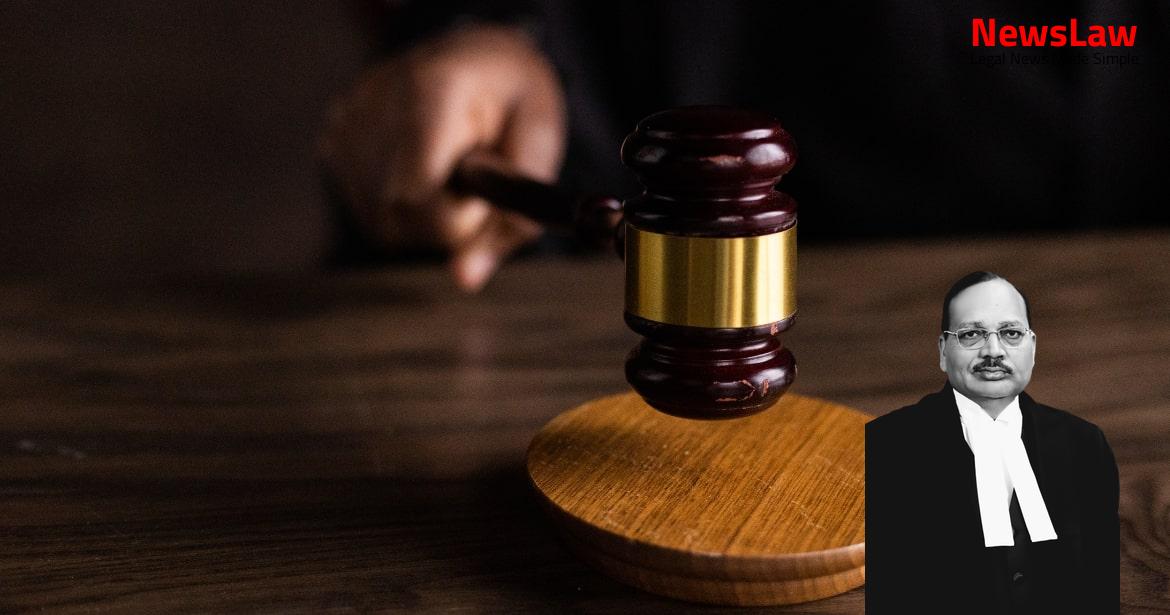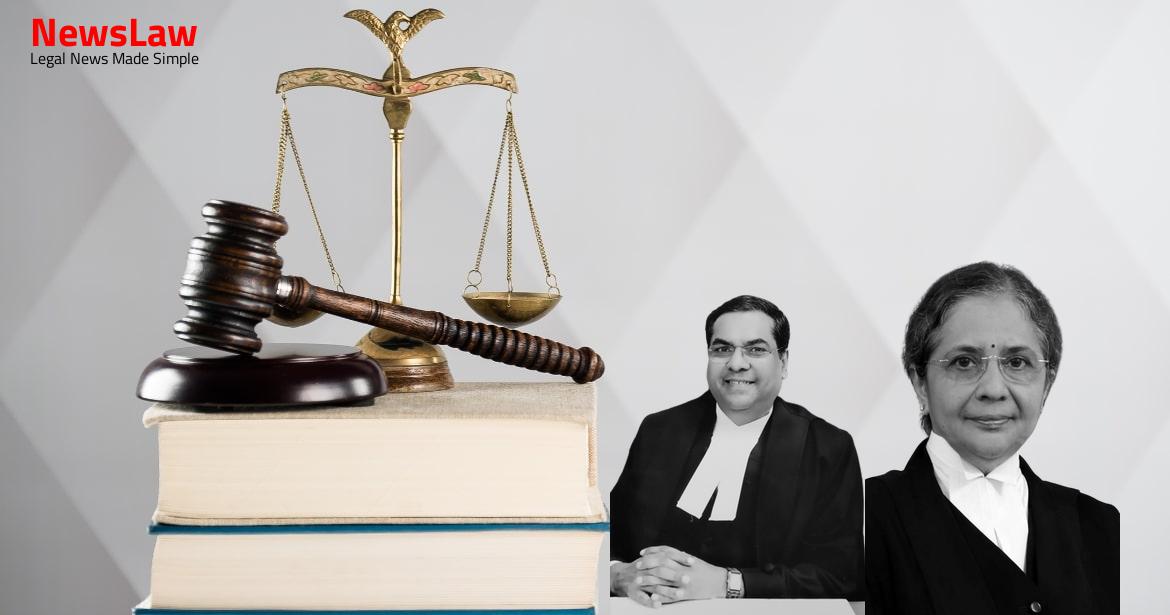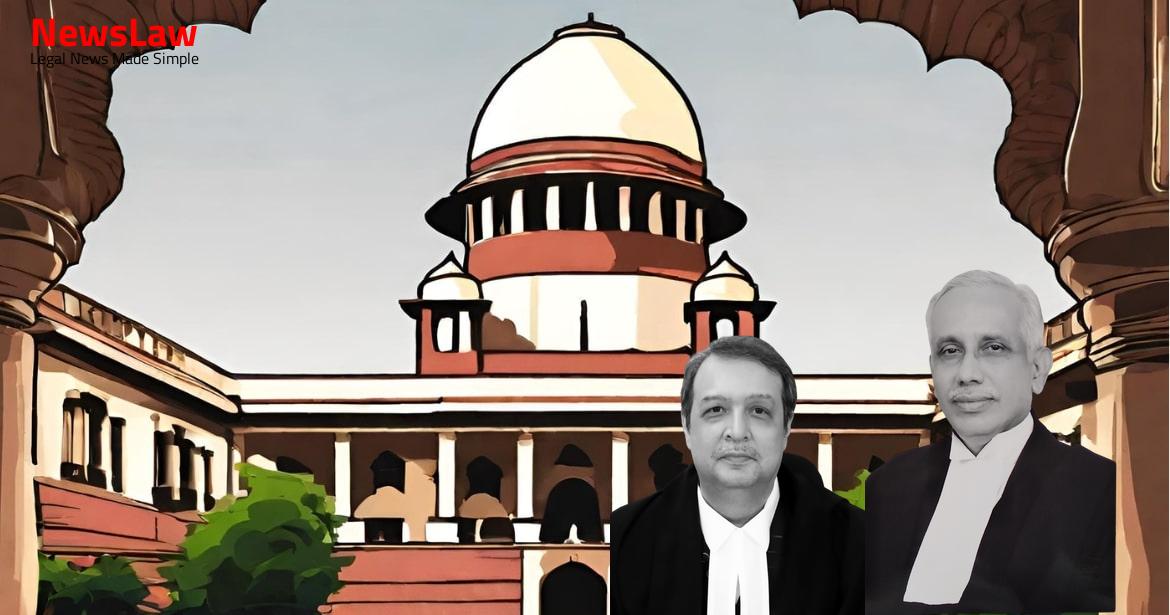Delve into the detailed legal analysis provided by the court regarding remission applications and the crucial role of the presiding judge in the process. This summary highlights the key considerations and requirements outlined by the court, shedding light on the factors influencing decisions on remission. Stay informed about the judicial perspective on remission applications and the significance of reasoned opinions in ensuring a fair and just outcome.
Facts
- The petitioner completed 16 years of imprisonment without remission and applied for premature release under Rule 358 of the Chhattisgarh Prisons Rule 1968.
- Rule 358 allows the State Government to suspend or remit sentences under Section 432 of the Code of Criminal Procedure.
- The presiding judge’s opinion is crucial in deciding on remission applications as per Section 432(2) of the CrPC.
- The Special Judge, Durg, opined against releasing the petitioner on remission citing the grave nature of the offence committed.
- The Law Department stated that without a positive opinion from the sentencing court judge, the petitioner cannot be released under Section 433-A of CrPC.
- Despite completing 20 years of imprisonment with remission, the petitioner’s case was again forwarded for consideration of remission by the Jail Department.
- The enmity leading to the case stemmed from the confiscation of wood by the forest department and damage to property, resulting in a fatal attack by the petitioner and others on the complainant’s family.
- The petitioner was convicted for various offences under the IPC and sentenced to life imprisonment, with no evidence supporting the charge under SC/ST Act.
- The High Court of Chhattisgarh confirmed the sentence in 2013, and a subsequent special leave petition at the Supreme Court was dismissed.
Also Read: Balancing Power and Transparency: Electoral Bonds Struck Down, Disclosure Mandated
Arguments
- Convict-prisoners can be considered for pre-mature release under Section 433-A of the CrPC after 14 years without the consent of the presiding judge.
- The appropriate Government has the discretion to seek the opinion of the presiding judge of the sentencing court under Section 432(2) of the CrPC.
- There is ambiguity in Section 432(2) regarding whether the presiding judge’s opinion should be the same as the judge who recorded the conviction.
- The petitioner is entitled to be considered for pre-mature release under Rule 358 (3) (A), (B) and (D) of the Prison Rules.
- While the government must seek the opinion of the sentencing court, it is not obligated to follow the opinion itself.
Also Read: Recall of Resolution Plan Approval: Legal Analysis
Analysis
- The Court held that the opinion of the presiding judge is crucial in considering applications for remission.
- The factors to be considered for grant of remission include the nature of the crime, the record of the convict, their background, and other relevant factors.
- The government’s decision on remission must be guided by the opinion of the presiding judge as highlighted in various cases.
- The power of remission cannot be exercised arbitrarily by the government.
- Judicial review can be conducted to ensure that the government’s decision on remission is fair and reasonable, and not arbitrary.
- The Court can direct the government to reconsider its decision on remission if found to be arbitrary.
- The opinion of the presiding judge on remission application is not binding on the government.
- Presiding judge’s opinion should not become just another factor for government’s consideration.
- Mechanically following the judge’s opinion would render the procedural safeguard under Section 432 (2) meaningless.
- However, the government is not obligated to blindly follow the judge’s opinion.
- Presiding judge must consider specified factors as per relevant case law before forming an opinion on remission.
- Presiding judge’s opinion must be accompanied by reasons as per Section 432 (2) of the CrPC.
- Opinions must be accompanied by adequate reasoning to satisfy the requirements of Section 432(2) of the CrPC.
- Inadequate reasoning does not serve the purpose of enabling the executive to make an informed decision on remission applications.
- The petitioner’s remission application should be re-considered as mechanical reasons are not considered adequate in this context.
Decision
- The State of Chhattisgarh has been directed to make a decision on the petitioner’s remission application within a month of receiving the opinion of the Special Judge, Durg.
- The petition under Article 32 of the Constitution has been allowed with the specified conditions.
- Any pending applications will be disposed of.
- The Special Judge, Durg is required to provide an opinion within a month of receiving the order.
- The opinion should include adequate reasoning considering the relevant factors for granting remission as per the case of Laxman Naskar v. Union of India.
Case Title: RAM CHANDER Vs. THE STATE OF CHHATTISGARH (2022 INSC 468)
Case Number: W.P.(Crl.) No.-000049 / 2022



